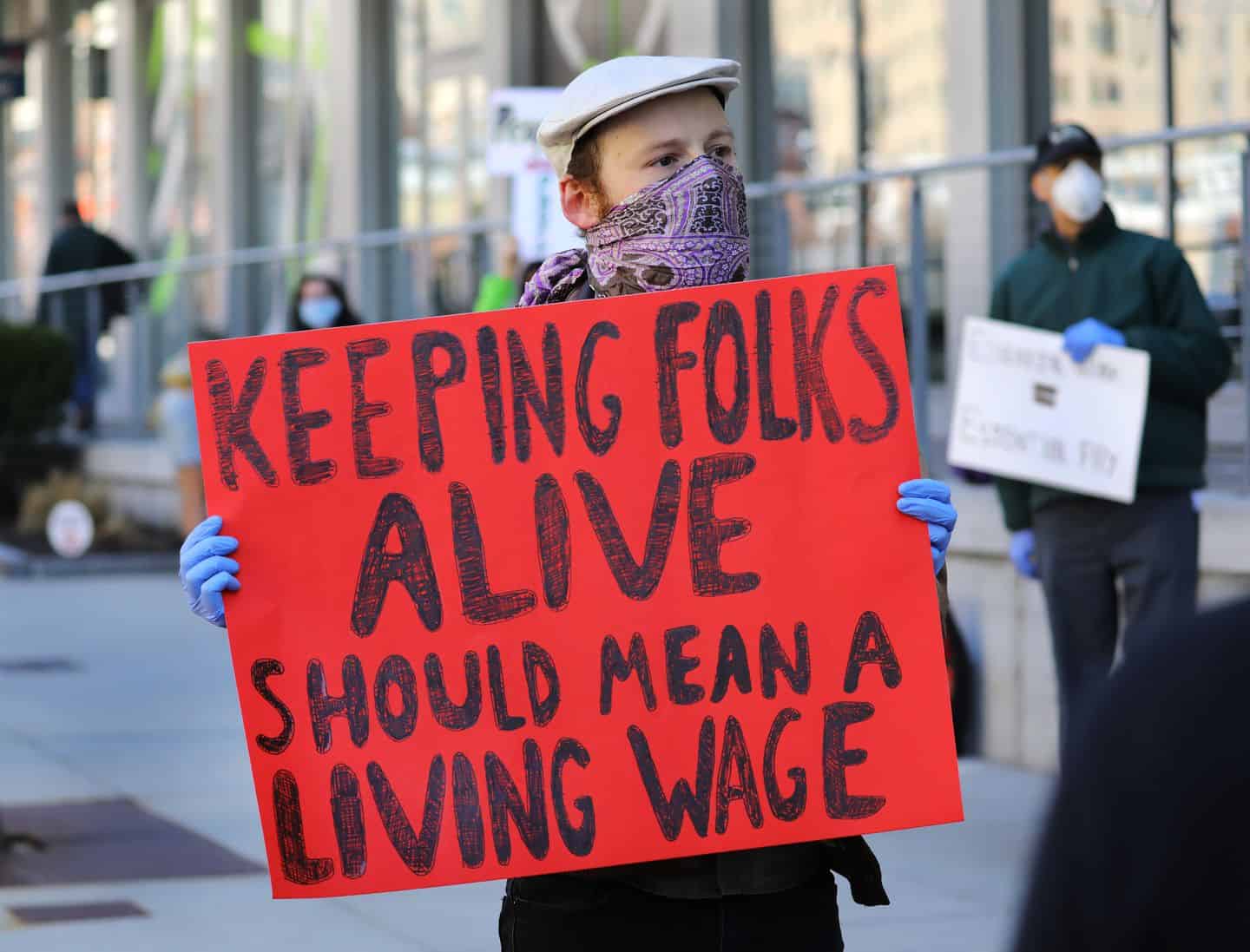
Fred Messner is a student at Harvard Law School.
Thousands of nurses are set to strike this morning across the Northern California-based Sutter Health system. As California’s KCRA3 reports, the nurses have been in negotiations for a new contract for over nine months with Sutter continuing to rebuff demands for additional protective equipment, safer staffing practices, and higher wages for experienced workers. “We are striking because Sutter is not transparent about the stockpile of PPE supplies and contact tracing,” one nurse interviewed by KCRA3 explained. “They resist having nurses directly involved in planning and implementation of policies that affect all of us during a pandemic.” The strike is expected to involve approximately 8,000 nurses and last through the end of the day today.
Looking back to Friday, a federal jury in Colorado acquitted dialysis provider DaVita, Inc. and its former CEO of criminal violations of the Sherman Antitrust Act, dealing a second straight loss to the Justice Department in its efforts to use the Act as a weapon against abusive and anticompetitive hiring practices. As Bloomberg Law reports, and as we have occasionally discussed here at OnLabor, the Justice Department brought two pathbreaking indictments under the Sherman Act in early 2021, one against DaVita for concluding “no-poach” agreements with competitors and one against the owner of a Texas-based physical therapy staffing firm for criminal wage fixing. A Texas jury came back against the Justice Department last Thursday, and DaVita was acquitted the following day. While the twin verdicts are certainly disheartening for supporters of the Biden Administration’s efforts to wield the antitrust laws to protect workers, they are unlikely to be the last word on the subject. Other indictments are pending, and even though the juries in these cases found for defendants, the courts allowed DOJ’s legal theory endorsed to proceed in both instances. As one DOJ official noted, ““In no way should the verdict today be taken as a referendum on the Antitrust Division’s commitment to prosecuting labor market collusion, or on our ability to prove these crimes at trial.”
Finally, California lawmakers will hold a hearing on Wednesday, April 20th, to consider legislation that would protect job applicants from discrimination on the basis of off-work marijuana use. As Bloomberg Law explains, “[l]awmakers are trying to fill in the gaps to protect those who use a substance that 37 states and the District of Columbia have legalized for medical use and 18 states and D.C. have legalized for recreational use.” Democrat-controlled states such as New Jersey, New York, and Connecticut (but also Montana) have passed laws barring employers from taking adverse action against workers or applicants’ recreational use, but California has yet to do so. Moreover, the California Supreme Court held in 2008 that existing antidiscrimination laws did not require employers to accommodate marijuana use. The timeline of the California bill remains uncertain, but Wednesday’s hearing will be a crucial first step towards passage.






Daily News & Commentary
Start your day with our roundup of the latest labor developments. See all
July 4
The DOL scraps a Biden-era proposed rule to end subminimum wages for disabled workers; millions will lose access to Medicaid and SNAP due to new proof of work requirements; and states step up in the noncompete policy space.
July 3
California compromises with unions on housing; 11th Circuit rules against transgender teacher; Harvard removes hundreds from grad student union.
July 2
Block, Nanda, and Nayak argue that the NLRA is under attack, harming democracy; the EEOC files a motion to dismiss a lawsuit brought by former EEOC Commissioner Jocelyn Samuels; and SEIU Local 1000 strikes an agreement with the State of California to delay the state's return-to-office executive order for state workers.
July 1
In today’s news and commentary, the Department of Labor proposes to roll back minimum wage and overtime protections for home care workers, a federal judge dismissed a lawsuit by public defenders over a union’s Gaza statements, and Philadelphia’s largest municipal union is on strike for first time in nearly 40 years. On Monday, the U.S. […]
June 30
Antidiscrimination scholars question McDonnell Douglas, George Washington University Hospital bargained in bad faith, and NY regulators defend LPA dispensary law.
June 29
In today’s news and commentary, Trump v. CASA restricts nationwide injunctions, a preliminary injunction continues to stop DOL from shutting down Job Corps, and the minimum wage is set to rise in multiple cities and states. On Friday, the Supreme Court held in Trump v. CASA that universal injunctions “likely exceed the equitable authority that […]